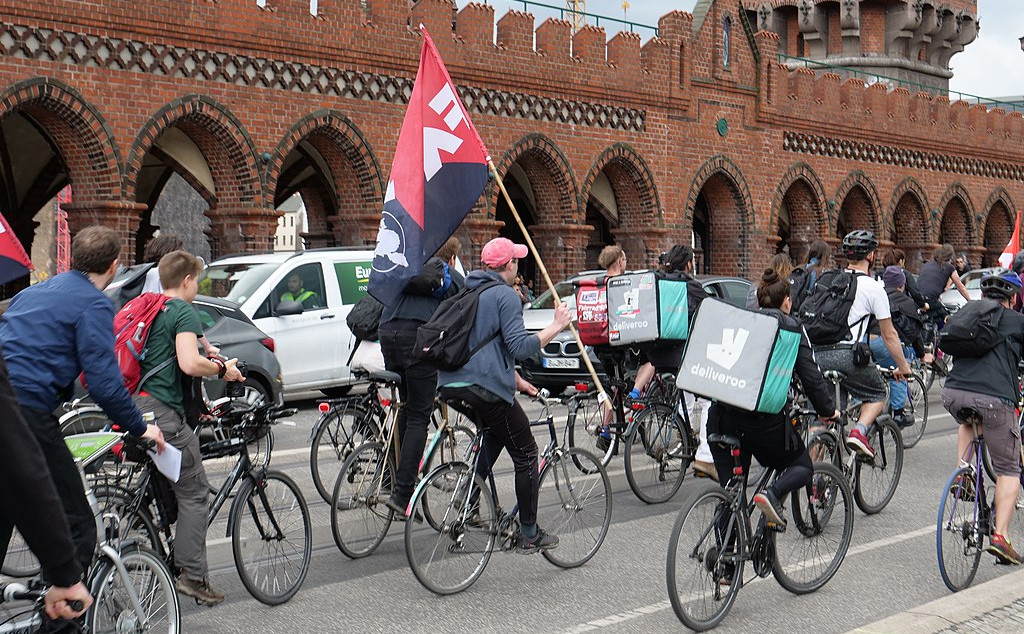Main Content
Gig Work as Adventure
Paper on Working Holiday Visas and Precarious Employment

A working holiday visa (WHV) allows young adults to get to know a country for a limited period of time and earn money there. But why do these workers regularly end up in precarious jobs in the gig economy, as delivery drivers or cleaners?In her article "Forging Mobilities, Becoming Ideal Workers? Temporary Migration and the Gig Economy," labour market researcher Barbara Orth attempts to explain this phenomenon. The paper was published in the Journal of Ethnic and Migration Studies.
Working holiday visas are regulated bilaterally between countries and are typically valid for one year. Users of these programmes often work in jobs that are arranged through platforms such as Deliveroo or Helpling. They usually work under high pressure, with uncertain pay and no social security. Barbara Orth conducted interviews with young people from Chile who came to Germany on a WHV. In many cases, she accompanied the migration processes over a longer period of time. It became apparent that this particular group of workers does not end up in precarious employment because they have no other choice. The interviewees were well educated, had careers and considered themselves members of the "white" middle class in their home country. Rather, they were driven by a desire for personal development through international migration. They saw jobs as cleaners or delivery drivers more as an adventure.
As it turned out, these temporary immigrants are the ideal workers for fast-growing platform companies that place orders with ‘freelancers’: they are young, healthy and skilled in the use of digital tools. Social security plays hardly any role for them – at least initially – partly because of their particular motivation and partly because of a lack of knowledge. Barbara Orth considers these arrangements particularly problematic because they obscure the longer-term costs and risks of the work. Only after a longer stay with different visa regimes do those affected become aware of their precarious situation. According to Orth, labour law regulations governing gig work must take greater account of the migration status of those affected.

